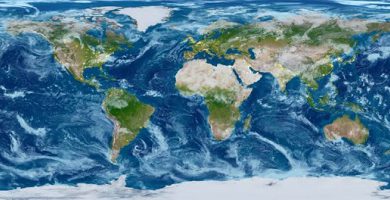What is the legislative power?
We explain to you what the legislative power is, who makes it up, its functions, powers and other characteristics.
-
What is the legislative power?
The legislative power or legislature is one of the public powers, that is, one of the three branches in which the power of the State is traditionally organized , together with the executive power and the judiciary.
Unlike the latter, the legislative branch is responsible for the creation, modification and repeal of the laws that govern society . It is also responsible for the budgetary administration of the State and the granting of special permits to the executive branch.
The legislature is, above all, an instance of political negotiation, which constitutes the parliament (Congress, Assembly, etc.). It is a deliberative body in which the different political forces of the country that have enough numerous voters to participate through deputies and / or senators in parliament are represented.
These officials, distributed in one or two chambers (deputies in one and senators in another) depending on the organization of the State of each country, are elected directly by the population .
The legislative power was contemplated in the classical theory of the separation of powers of Montesquieu, whose purpose was to avoid tyranny. It had its most significant antecedent in the National Assembly established by the insurgent forces during the French Revolution of 1789, and which later gave rise to the National Constituent Assembly.
-
Characteristics of the legislative branch
Legislatures can be very different depending on the country , in their name, size or composition, according to the prevailing legal system.
For example, the National People’s Assembly of China has 2,987 members, while the Pontifical Commission for the State of the Vatican City has 7. Obviously, the more numerous its concurrence the more difficult it will be to establish agreements , since the parliament assumes a representative entity of the different wills of the sovereign people.
The legislative power can be:
- Monocameral : It is composed only of deputies.
- Bicameral : It is composed of deputies and senators, whose functions are distributed and differentiated, usually to give greater power to the latter.
The cases of tricameral assemblies are rare and in disuse.
-
Who makes up the legislative power?
The legislative branch is made up of popularly elected officials . They generally belong to the political parties of the society or to independent organizations that support them.
These officials usually constitute “benches”, that is, groups of legislators organized according to their political affiliation and interests, to try to exert pressure on others and have resolutions approved that interest them most.
For the rest, these legislators can come from very diverse strata, with or without previous political trajectory, in accordance with the regulations that the National Constitution contemplates. The enormous importance of this public power is due to the fact that it reflects the plurality and diversity of the population. That is why it is the scene of debates, quarrels and also agreements and negotiations.
-
Functions and powers of the legislative branch
The exact powers of a parliament are contemplated in the legal system and are guarded by the judiciary, who must ensure that what is prescribed in the Constitution is complied with. Thus, the functions of parliament are generally as follows:
- Write new laws to legally address the realities that are occurring in the country.
- Modify or repeal laws that have become obsolete, that hinder the work of the State or are considered unfair.
- Supervise the national budget and approve or deny the executive’s requests in this regard.
- Choose the political authorities of other bodies attached to the legislative branch, such as the electoral committees or even appoint the judges of the judiciary, with the permission of the executive.
- Interpellate or prosecute politicians of the executive and the legislature itself, if it is considered necessary to carry out some type of investigation. It can also lead to the dismissal of the official.
- Grant special permits or powers to the executive in certain situations.
-
Other public powers
Together with the legislative branch, the traditional conception of public authorities contemplates:
- Executive power . He is in charge of taking the State’s wheel, making the pertinent political decisions. Its main figure is the president or prime minister of the country, along with ministers, governors, mayors and other personal positions of public choice.
- Judiciary . Ensures compliance with the law, both by the other two public authorities, as well as citizens . He is responsible for interpreting the constitutional text in its original spirit. It is formed hierarchically organized cuts. The judges that integrate it are not elected by the population.




